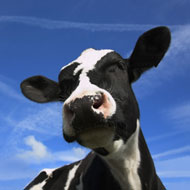Defra announces more frequent bTB testing

The new rules will mainly affect the south west and parts of the Midlands.
Cattle herds in the High Risk Area of England will require six-monthly routine TB testing, under plans announced by Defra today (21 December).
The new rules will mainly affect the south west and parts of the Midlands. Annual tests will remain for herds that have been disease-free for five or more years, however, as well as farms accredited under the Cattle Herd Certification Standards (CHeCS).
Grants are also now available for badger vaccination in the Edge Area next year. The Badger Edge Vaccination Scheme is open for the first round of applications until 19 January 2018 and successful applicants will receive at least 50 per cent of their costs.
The frequency of bTB testing in the Edge Area will be more risk-based from January next year, with more herds undertaking six-monthly testing.
Defra said the changes form part of its 25-year plan to eradicate bTB in England and follow on from recent peer reviewed research, which shows badger control has contributed to significant reductions of the disease in cattle herds. The research paper by Brunton et al (2017) suggests reductions of 58 per cent in Gloucestershire and 21 per cent in Somerset.
Research also published today indicates that all 19 badger culls achieved the population reductions needed to effect disease control benefits, Defra added.
Chief veterinary officer Nigel Gibbens said: “This year’s results show that badger control can be delivered successfully on a much wider scale, with all 11 new areas delivering effective operations.
“Expansion into further areas, alongside our robust cattle movement and testing regime, will allow us to achieve and maintain long term reductions in the level of TB across the South West and Midlands where the disease is widespread.”
However, badger culling - which took place in 21 areas across England this year - remains controversial among the public and wildlife charities, as well as many vets and scientists, with critics branding it ‘ineffective’, ‘inhumane’ and ‘unscientific’.
Other measures introduced today are new compensation arrangements for pigs, sheep, goats, deer and camelids that are slaughtered because of bTB. The changes, which come into force on 2 January, bring England into line with Scotland and Wales. There will also be reduced compensation for animals that are unclean when presented for slaughter and delayed slaughter of pregnant cattle that test positive for bTB.



 The Federation of Independent Veterinary Practices (FIVP) has announced a third season of its podcast, Practice Matters.
The Federation of Independent Veterinary Practices (FIVP) has announced a third season of its podcast, Practice Matters.